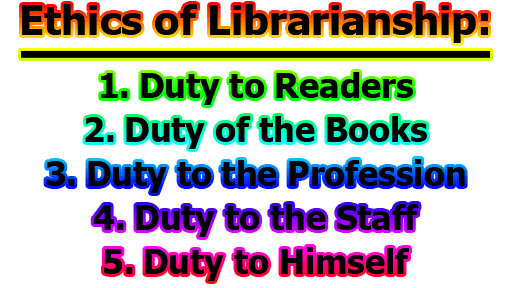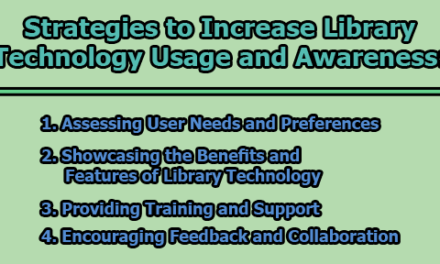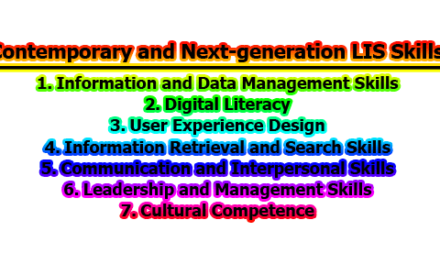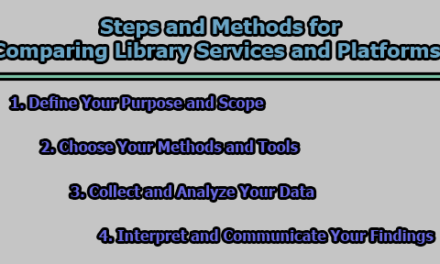Ethics of Librarianship:
Ethics is an important aspect of librarianship, and it guides the behavior and actions of librarians in their professional roles. Here are some of the key ethical principles that underpin librarianship:
- Duty to Readers: This duty includes providing access to a wide range of materials and resources that are appropriate and useful to the library’s patrons. It also involves ensuring that the materials in the collection are accurate, unbiased, and free from censorship. Librarians should be knowledgeable about their collections and be able to guide readers to appropriate resources that meet their needs.
- Duty of the Books: Librarians have a responsibility to preserve the books and other materials in their collections for future generations. This includes protecting them from damage, theft, and deterioration, and providing appropriate storage and handling. Librarians should also work to ensure that their collections reflect the diversity of society and provide access to materials that may have been historically marginalized or excluded.
- Duty to the Profession: Librarians have a responsibility to uphold the values and principles of the profession, including intellectual freedom, confidentiality, and equitable access to information. They should maintain their own professional development and education, and adhere to professional standards and codes of ethics. Librarians should also support the development of the profession and contribute to its growth and advancement.
- Duty to the Staff: Librarians have a responsibility to treat their staff fairly and with respect, creating a positive and supportive work environment. This includes providing training and development opportunities, recognizing staff accomplishments and contributions, and promoting diversity and inclusion in the workplace.
- Duty to Himself: The duty of a librarian to himself means the acquaintance of a librarian with those books with which he is there to serve his clientele. He must know something of everything so that he may fulfill his duty to himself in a befitting manner. – P.M Hesdien remarked, “We must have both dignity and humanity.” He further said, “If complaints reach you that you are flippant.”
In conclusion, the Ethics of Librarianship is based on a set of core principles and values that guide the profession. These include providing access to accurate and unbiased information, preserving materials for future generations, upholding professional standards and codes of ethics, treating staff fairly and with respect, and maintaining personal and professional integrity. By adhering to these principles, librarians can ensure that they are providing the highest quality services to their patrons and contributing to the growth and advancement of the profession.

Assistant Teacher at Zinzira Pir Mohammad Pilot School and College










